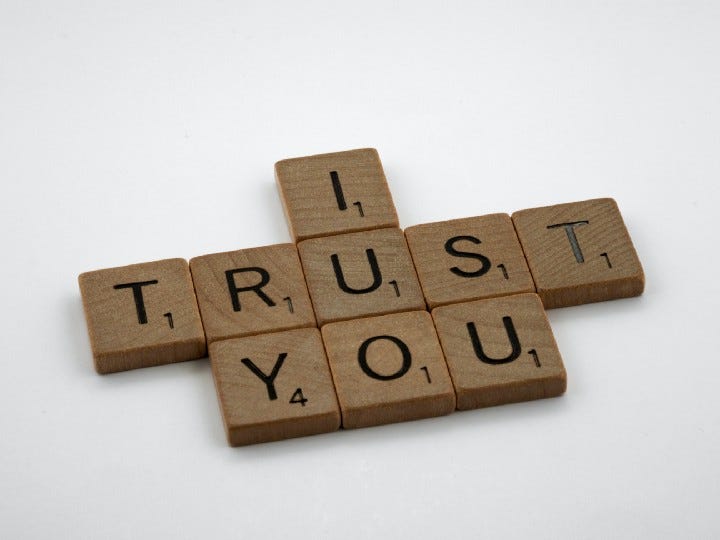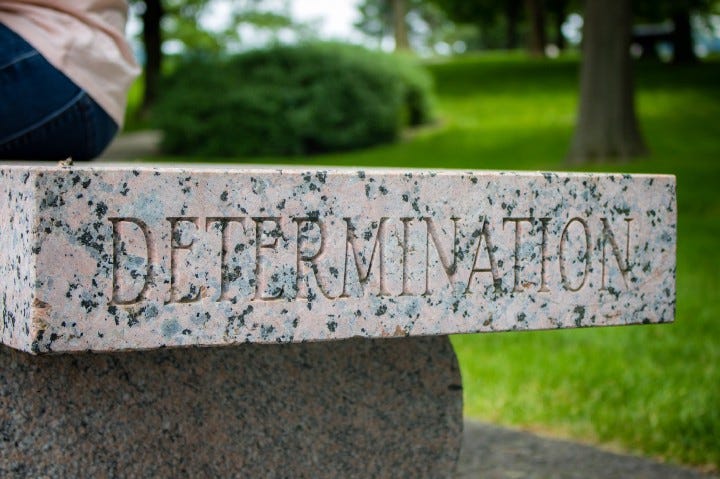Life itself is the very definition of uncertainty because none of us will get out of here alive, so that makes death the only constant. I have always wanted a lot of things, some of which I got, some of which I am aiming to get, some of which I figured I already had, and some of which I had to let go because I realized it wasn’t going to work at all (a very bitter pill I had to swallow). I failed myself a lot of times and I always wondered why it just seemed so difficult for me to get the things I want.
The things I didn’t wish for were happening to me and those that I wished for were either difficult to get or easy to slip through my hands.
At a point, I started to lower my expectations so that way, I wouldn’t expect so much from anything as to consider it a failure, and so my motto would become
Expect disappointment and you’ll never be disappointed
After a while, I would come to realize that I stopped putting in the work for most things I was meant to be doing, I became so lazy I found myself picking up goals and dropping them almost right away. I had a retort, maybe what I needed was to raise my expectation and my new motto would become
The sky is not the limit
Then I realized again that I was mostly raising the bars too high for myself and I was putting myself down every single time I did not live up to what I was expecting, I blamed myself for being too lazy. I had to think again, what was I doing wrong, I asked. Again, I thought to myself, maybe I need to meet myself in the middle, perhaps to raise my expectations not too high as to wear me out and not too low as to make me lazy, my new motto would then be:
Be You
However brief, those two words made me understand that I had upper counterfactual thinking, I was trying to imitate a lot of high-achievers I read about online. After a while of “being myself,” I realized that I was only playing by my strengths and I wasn’t growing at all, I was trying to be myself when in fact I wasn’t even sure of who I was at that moment. It also dawned on me that I was too busy focused on the end goal that I didn’t pay attention to my attitudes and habits towards that goal, I was waking up each morning telling myself the things I wanted to achieve instead of planning how the day would be schemed to get me closer to it. It was through those series of self-discovery that I came across a quote:
Focus on the journey, not the destination
At this level, I was planning toward my goals and things started to make sense, I was building time blocks for my goals each day and I was starting to achieve more clarity. It wasn’t until when I started to wonder why I wasn’t attaining my goals within the required timespan that I discovered that I was moving too slow and sometimes I’d tell myself that moving slowly only means that I was taking my time to enjoy the journey and it seemed like good advice at the moment but as time went on, I began to lose sight of my goals and its urgency so I just continued to make plans. When I was sinking deep into deadlines, I knew I had to make a change so I rephrased the quote to mean:
Focus on the journey AND the destination

Those two coupled together can create really exciting memories and they help to build more conscientiousness, plus, there is no one-size-fits-all advice. Sometimes, we want to focus on the journey more [like when you are at a seminar that is said to be life-changing or in college] or you want to focus on the destination more [like when you are aiming for a job or trying a fitness goal]. Death itself is a destination and not a very pleasant one to focus on — but denying its existence isn’t going to make it go away — accepting its inevitability allows you to live with more meaning. This is an uncertain world full of uncertain things, one moment you could be hanging with your buddies and before you know it, something bad happens and somehow you feel lost because of how quickly it rushed in.
Every unhappiness you have in life is a result of the desire that you set out in your mind that you’ll not be happy until your desire is fulfilled
I wasn’t living in the moment, I was living for a moment, anytime I checked something off of my to-do list, I was always asking myself what next because it never felt fulfilling or exciting enough. I was afraid that if I slowed down, I might spiral out of control.
Modern man thinks he loses something — time — when he does not do things quickly; yet he does not know what to do with the time he gains except kill it.
— Erich Fromm
Fromm was right; people didn’t use extra time earned to relax or connect with friends or family. Instead, they try to cram more in.
They say to focus on what you can control, but should you? Let’s break it down, shall we…
What exactly does it mean to be IN control? It means to be immune to any external pressure — to be unstoppable — otherwise known as an internal locus of control. Looking at what we can claim to be in control of, we can infer that it is impossible for the sovereignty of control. To better define the aforementioned statement, we could examine four variables of it:
1. Focus on what you KNOW you can control (Controlled action)
2. Focus on what you THINK you can control (Uncontrolled action)
3. Focus on what you KNOW you can’t control (Controlled inaction)
4. Focus on what you THINK you can’t control (Uncontrolled inaction)
The first statement is obvious because it is based on conclusive experiments of repeated trials. The second statement, however, might seem possible but sadly, it’s mostly fuelled by ego. The third statement is based on an inner criticism of oneself. The fourth statement is either fuelled by anxiety or fear.
You have to understand that not everything will work out, so eventually, you’ll have to let go of those things. To focus on what you know you can control is to focus on the things that you’re already good at, something you feel confident about. To focus on what you think you can control is to try forcing something to work your way even when it has been futile countless times. To focus on what you know you can’t control is to waste your time thinking about your past failures and making yourself feel bad all the time. To focus on what you think you can’t control means to work on those tasks that you seem to feel doubt about, the ideas that you’re too scared to look at.
Focus on what you know you can control and what you think you can’t control
Those are the actual things that need your attention. As for what you think you can control, you should accept that when you have tried something several times and yet has proven negative, it is rational to let go, and as for that which you know you can’t control, understanding that your lack of inaction in something isn’t based on you being ignorant — or useless — but instead on you being resolute by learning from it and taking the lessons along with you.
So next time you find yourself in an uncertain situation, take a step back and ask yourself
· Do you know if you can control it?
· Do you think you can control it?
· Do you know if you can’t control it?
· Do you think you can’t control it?
Whichever question helps to evaluate the situation, accord its appropriate response.
Life can get hard for two reasons; you’re either leaving your comfort zone or staying in it.

Summary
· Focus on the journey and the destination.
· There is no one-size-fits-all advice.
· Stop and smell the flowers. Do not just jump from one task to another.
· Focus on what you know you can control and what you think you can’t control.
· If something isn’t working, do something different or do something differently.
· Life can get hard for two reasons; you’re either leaving your comfort zone or staying in it.
Feel free to comment down below and please leave a like and a follow, I would really appreciate that.





